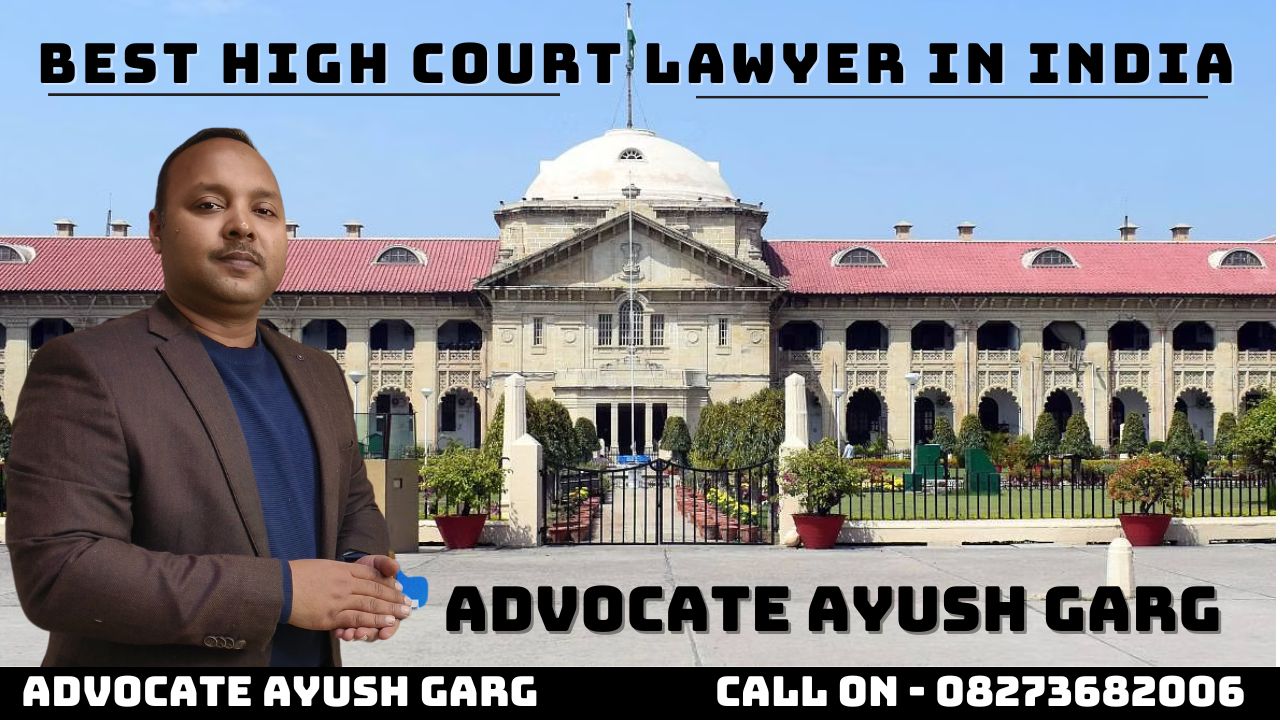legal issues can be daunting, especially when it involves the high courts of India. Whether you\’re facing a complex legal battle, need expert advice, or are seeking representation for an important case, choosing the Best High Court Advocate In India. Here’s a comprehensive guide on what to look for and some of the top advocates you should consider.
[maxbutton id=\”1\” url=\”https://wa.me/918273682006\” text=\”Whatsapp Here\” ]
Qualities of a Top High Court Advocate
- Expertise and Experience
- In-depth Knowledge: The advocate should have a profound understanding of the law, particularly in high court matters. This includes familiarity with legal precedents and the nuances of court procedures.
- Years of Practice: Look for advocates with extensive experience. A seasoned advocate has likely encountered a wide range of cases and developed effective strategies for different scenarios.
- Specialisation
- Field of Law: Many advocates specialise in areas such as criminal law, civil rights, corporate law, or family law. Choosing an advocate with expertise in the specific area relevant to your case can significantly improve your chances of a favourable outcome.
- Case History: Review their previous cases to ensure they have successfully handled cases similar to yours.
- Reputation
- Peer Reviews: An advocate’s reputation among peers can provide insight into their legal prowess and ethical standards.
- Client Testimonials: Positive feedback from former clients can indicate reliability and client satisfaction.
- Communication Skills
- Clarity and Accessibility: A good advocate should be able to explain complex legal terms and procedures in simple language. They should keep you informed about your case’s progress and be accessible for consultations.
- Persuasiveness: The ability to persuasively present arguments in court is a key trait of successful advocates.
- Dedication and Ethics
- Commitment to Clients: The best advocates are dedicated to their clients, ensuring they represent you with integrity and diligence.
- Ethical Standards: High ethical standards ensure that the advocate will act in your best interests and maintain confidentiality.
Leading High Court Advocates in India
- Fali S. Nariman
- Expertise: Constitutional law
- Achievements: Over six decades of experience with numerous landmark cases
- Reputation: Respected for his legal acumen and ethical standards
- Harish Salve
- Expertise: Constitutional and commercial law
- Notable Cases: Represented clients in high-profile cases, known for his strategic approach
- Communication: Highly effective in articulating complex arguments
- Mukul Rohatgi
- Background: Former Attorney General of India
- Specialisation: Constitutional and corporate law
- Approach: Known for his comprehensive knowledge and strategic legal tactics
- Gopal Subramanium
- Fields: Constitutional law, arbitration, human rights
- Track Record: Impressive record of successful cases, commitment to justice
- Ethics: Highly dedicated to client welfare
- Indira Jaising
- Focus: Women’s rights, social justice
- Career Highlights: Distinguished career advocating for human rights
- Public Interest: Renowned for her work in public interest litigation
- Ayush Garg
- Expertise: Known for a strong grasp of high court procedures and a broad understanding of various legal fields
- Client-Centric Approach: Dedicated to providing personalised and effective legal solutions
- Reputation: Well-regarded for ethical practices and successful case history
Also visit:Best Bank Account Unfreeze Lawyer in Dehradun
How to Choose the Right Advocate for Your Case
- Assess Your Needs
- Specific Legal Expertise: Identify the specific area of law your case falls under. This helps in selecting an advocate who has specialised knowledge and experience in that field.
- Research and Reviews
- Thorough Investigation: Conduct detailed research on potential advocates. Read reviews and testimonials from former clients. Personal recommendations from friends or family can also be valuable.
- Consultation
- Initial Meetings: Schedule consultations with a few advocates to discuss your case. This will give you a sense of their approach, communication style, and whether you feel comfortable working with them.
- Questioning: Prepare questions about their experience, strategy for your case, and how they plan to communicate updates.
- Fee Structure
- Transparency: Ensure that the advocate’s fee structure is transparent and aligns with your budget. Ask for a detailed breakdown of costs to avoid misunderstandings later on.
- Affordability: Consider whether the advocate\’s fees are reasonable given your financial situation.
- Availability
- Resource Allocation: Make sure the advocate has the time and resources to dedicate to your case. An overburdened advocate may not be able to provide the necessary attention to your case.
- Support Team: Check if the advocate has a competent support team, such as junior advocates or legal assistants, to help with your case.
- Track Record and Success Rate
- Previous Case Outcomes: Investigate the outcomes of previous cases handled by the advocate. A high success rate can be a good indicator of their competence.
- Courtroom Performance: Look into their performance in the courtroom, including their ability to argue cases effectively and their relationship with the judiciary.
- Client-Attorney Relationship
- Comfort and Trust: It’s essential to choose an advocate you feel comfortable with and can trust. A good working relationship can make the legal process smoother and more effective.
- Personal Attention: Ensure that the advocate is willing to give your case the personal attention it deserve
Also Visit:Bitcoin और Cryptocurrency के कारण Bank Account Freeze क्यों हो रहा है?
Choosing the best high court advocate in India requires careful consideration and thorough research. By focusing on experience, specialisation, reputation, and communication skills, you can find an advocate who will effectively represent your interests and help navigate the complexities of the legal system. With the right advocate by your side, you can approach your case with confidence and peace of mind.


Leave a Reply